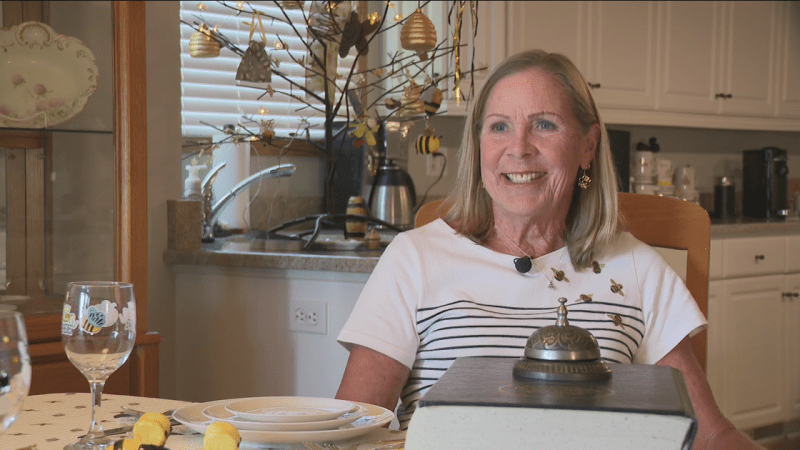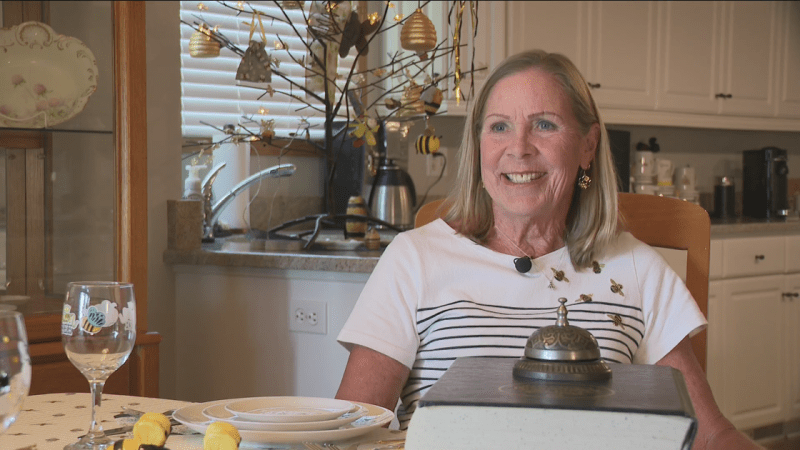Celebrating a Century of the Scripps National Spelling Bee in West Des Moines, Iowa
As the Scripps National Spelling Bee marks its 100th anniversary, enthusiasts nationwide reflect on a century filled with captivating moments that have united young competitors and audiences alike.
At the heart of this celebration is Mary Brooks, the esteemed head judge since 2005, who has been deeply involved in this beloved event for decades. "My principal duty is listening," Brooks shared. "While I work alongside a team of judges, it’s my voice you hear, and it’s my hand that signals the final decision, delivering either a ‘that’s correct’ or ringing the bell that signals a misspelled word."

Mary Brooks, the iconic head judge, is known for ringing the famed bell that signifies a misspelled word in the Spelling Bee. (Image Source: WHO)
The bell that Brooks rings has its own storied history, featuring engravings dating back to the Civil War, symbolizing the rich tradition of the bee. "I inherited this bell from my late mother-in-law," Brooks revealed. "Its aesthetic and historical significance resonate deeply with me. It serves as a reminder that some things from our past endure."
The bell has become synonymous with the Spelling Bee itself, as Brooks poignantly noted: "It embodies my role in the bee. When I was absent in 2014, the lack of this bell was felt more than my absence. The audience missed its familiar sound, underscoring its importance. It’s almost like the bell is more recognizable than I am."
Brooks’ dedication to the art of spelling is evident in her apparel—she proudly wears bee-themed accessories, including earrings. Her journey with the National Spelling Bee began after high school, inspired by her uncle James H. Wagner, the former executive director. "He invited me to join the staff in Washington, and I was instantly captivated," she recalled.
Her commitment has spanned over five decades, largely driven by the children involved. "This event goes beyond mere spelling," Brooks emphasized. "It’s about enriching vocabulary and fostering a love for language. Supporting youth in honing their skills is something I cherish."
A retired educator from West Des Moines, Brooks believes that the Spelling Bee is about much more than rote memorization; it’s about literacy, reading, and the joy of words. One heartwarming memory she cherishes is from the 2021 event, dubbed the "comeback bee" after the 2020 competition was canceled due to COVID-19. Zaila Avant-garde, a 14-year-old from Harvey, Louisiana, made headlines by spelling "Murraya" after humorously inquiring if it was related to comedian Bill Murray. "That moment gave me goosebumps!" Brooks exclaimed, noting it symbolized a return to normalcy.
Celebrating victories is always sweeter than experiencing losses. In recent years, Brooks has made efforts to soothe participants when they stumble by offering words of encouragement, an initiative affectionately dubbed "Mary’s Moments." "These moments help remind spellers of the invaluable experiences they gain, which will serve them well in their future endeavors."
Brooks also relates the resilience of the bee to the iconic insect itself: "The symbol of the bee inspires us to remember that we can overcome obstacles, even if it seems impossible at times. It resonates with the kids—don’t let anyone tell you ‘you can’t.’ You can!"
Originating in 1925, the Scripps National Spelling Bee was initiated when the Louisville Courier-Journal encouraged other newspapers to host spelling competitions, eventually bringing champions to Washington. The current bee takes place near the Potomac River, showcasing talent from across the nation. This year marks the 97th event, with a champion set to be crowned during a two-night extravaganza airing on the ION television channel.
To explore more about this historic event, visit the Scripps National Spelling Bee’s official website.
Contributed by The Associated Press.

